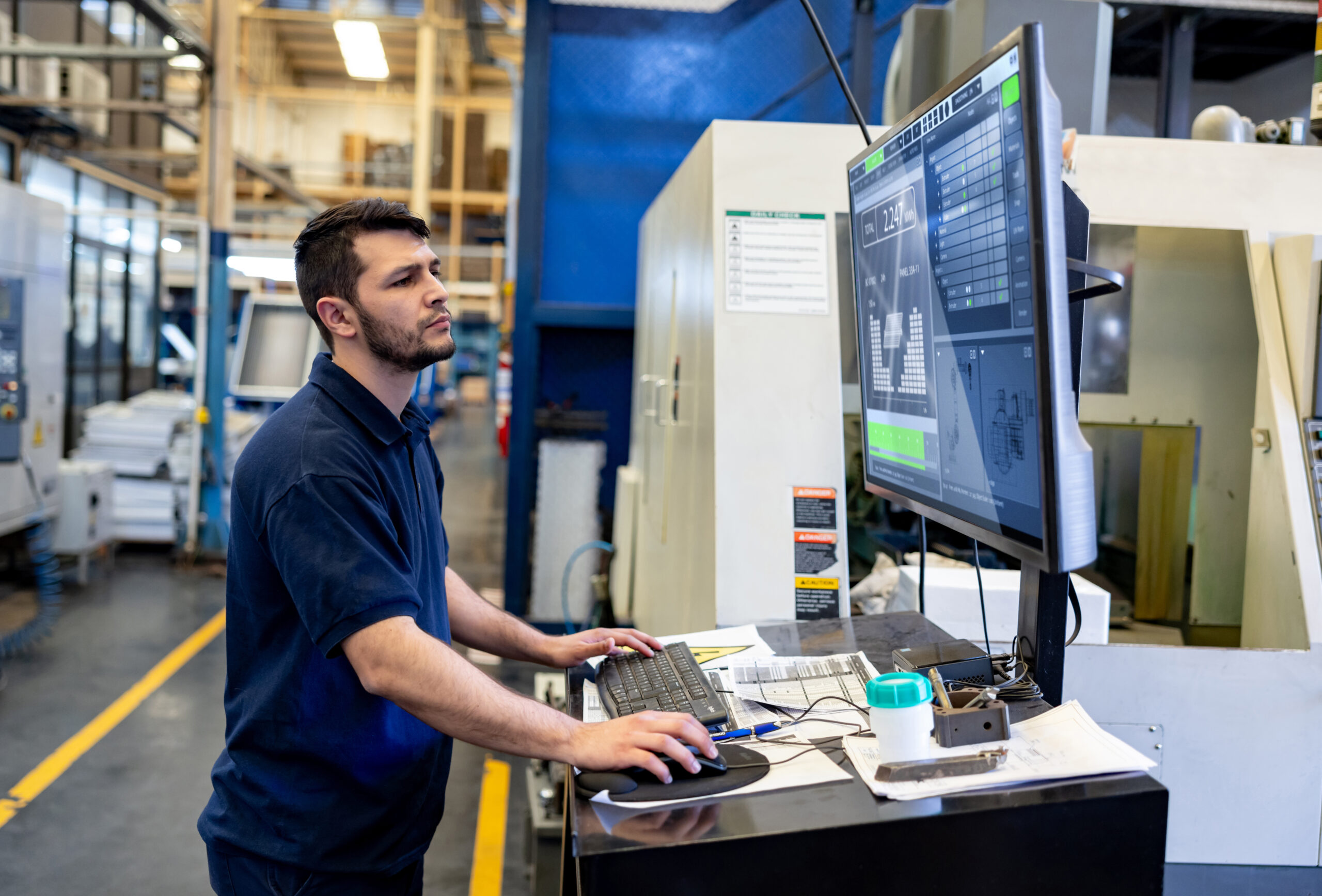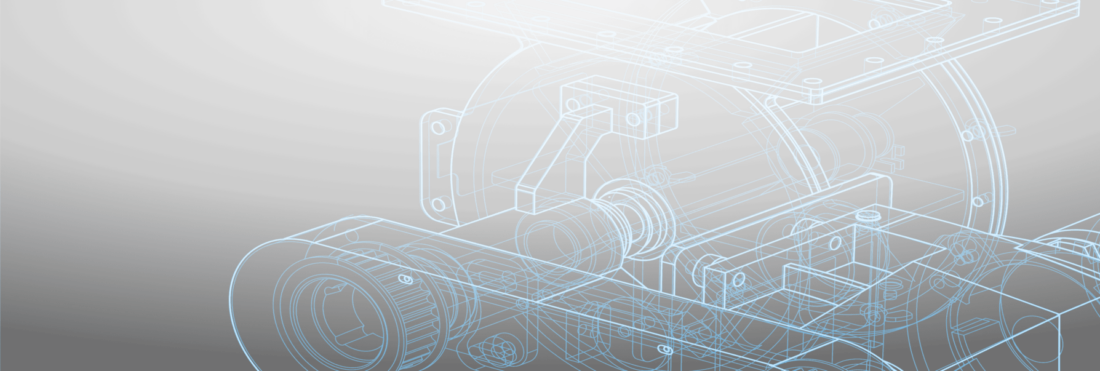
ERPs are the industry gold standard for a reason—no other tool revolutionizes your manufacturing operations or uses accurate real-time data to streamline business processes like an ERP.
An Enterprise Resource Planning system integrates your business operations into a centralized platform, enabling seamless coordination and improved productivity, all while lowering costs. Read on to discover eight amazing things you can do with an ERP system to unlock new levels of success and growth for your business.
1. Streamline Production Planning and Scheduling
Use an ERP system to optimize your production planning and scheduling. By centralizing information on orders, inventory and resources, ERPs help you create detailed and precise schedules, including accurate lead time estimation, as well as real-time tracking of production progress. This streamlines your operations, reduces bottlenecks and enhances on-time delivery.
Real-time updates enable instant visibility into production statuses and available resources to facilitate informed decision-making. Through optimized resource allocation, downtime is minimized, and resource utilization is maximized. ERPs also give you automated workflows, real-time alerts and supply chain integration to improve coordination and reduce delays.
2. Efficiently Manage Inventory
Effective inventory management is critical for custom manufacturers—use an ERP system to effortlessly and efficiently manage your inventory, ensuring seamless operations and improved productivity. With an ERP, you will avoid dreaded stock emergencies that result in insufficient raw materials to meet production demands.
An ERP system enables real-time tracking of inventory levels, automates replenishment processes and provides insights into material availability. This ensures that you maintain optimal stock levels, reduce excess inventory and avoid shortages, ultimately improving cash flow and customer satisfaction by keeping your shop running at maximum efficiency.
3. Effectively Manage Your Supply Chain
You rely on your partners and vendors to supply you with the right type and amount of materials at the right time to keep your production line moving. A robust ERP system optimizes supply chain management for custom manufacturers by automating your workflows and streamlining your processes, helping you to effectively manage complex supply chain networks.
With an ERP, you can collaborate seamlessly with suppliers, track shipments and manage procurement processes efficiently. You will improve relationships with your suppliers and partners, and information will flow seamlessly throughout your organization, making the procurement of goods easier and quicker. By ensuring timely availability of materials and reducing supply chain disruptions, you will improve operational efficiency and maintain a competitive edge.
4. Control Costs
Controlling costs is vital for small- to mid-sized manufacturers to remain competitive in today’s marketplace: An ERP system gives you comprehensive cost-tracking capabilities, allowing you to monitor expenses across different departments and projects. With an ERP, you can oversee costs throughout the entire production process to identify areas for potential cost savings.
You can analyze labor, material and overhead costs, enabling better decision-making and cost-reduction strategies. Real-time data, plus historical records, allow you to comprehensively analyze costs and identify which of your jobs are truly profitable.
5. Integrate Your CAD System
Integrating your CAD software with a manufacturing-specific ERP system allows you to seamlessly transfer design data to your ERP platform, eliminating manual data entry and reducing errors. CAD (Computer-Aided Design) software is essential for creating accurate and detailed product designs. With seamless CAD integration, you will optimize your design-to-production workflows to improve shop performance and efficiency.
CAD integration enables better collaboration between design and production teams, streamlines the quoting and estimating process and enhances overall efficiency in product development. Real-time synchronization between your CAD and ERP systems ensures that accurate product information flows seamlessly through the entire manufacturing process, resulting in improved productivity, reduced lead times and enhanced customer satisfaction.
RELATED ARTICLE: Get Seamless CAD Integration with Genius CAD2BOM
6. Integrate Your CRM
Your customer relationships are one of your most important business assets. Ensuring customer satisfaction is essential as it cultivates repeat business and generates valuable referrals. An ERP system equipped with integrated CRM (Customer Relationship Management) functionalities allows you to better manage and nurture customer relationships to foster customer loyalty.
A CRM connected to your ERP streamlines your customer support and makes your business more efficient, enables you to offer more fair and consistent pricing and helps you manage sales opportunities. Track customer interactions and streamline the entire sales cycle with an integrated CRM to improve service levels. By accessing customer data, preferences, and order history in one place, you can provide personalized service and build strong long-term relationships.
7. Use Real-Time Data Analytics for Better Decision-Making
An ERP system provides valuable insights through real-time data analytics—letting you make better decisions that drive your business forward. ERPs equipped with robust data analytics and business intelligence (BI) features give you the tools to assess and improve your operations, streamline your processes and increase efficiency and profitability.
With an ERP, you can generate reports, monitor key performance indicators (KPIs) and gain actionable insights into various aspects of your business. This empowers you to make informed decisions, identify trends and seize opportunities for continuous improvement. When used in tandem, ERPs and BI improve your business’s agility, give you complete visibility and oversight into your operations and pave the way to business success.
8. Grow Your Business
As a small- to mid-sized custom manufacturer, your goal is growth. An ERP system is designed to scale alongside your business, accommodating increased orders, expanding product lines and entering new markets. Investing in an ERP will let you take complete control and integrate all your departments into one system. You will streamline business processes and enable easy sharing and collaboration between your departments. An ERP will reduce the cost and complexity of managing your business and make you a leaner and more efficient organization, poised to handle new challenges and take on more business.
With an ERP, you can leverage your data not just to give you a snapshot of where your business is at, but also to create a strong strategic direction for your company. An ERP provides a foundation for sustained growth, allowing you to seize opportunities without worrying about outgrowing your current systems.
Conclusion
Small- to mid-sized custom manufacturers can greatly benefit from implementing an ERP system. From optimized production planning to real-time analytics, an ERP system is invaluable in driving operational efficiency and fostering growth. By investing in an ERP solution and unlocking your company’s full potential, you can position yourself for success in today’s dynamic marketplace.
Request a demo today to see how Genius ERP can drive your business forward.
Get your eBook Scared to implement a new ERP?
"*" indicates required fields



